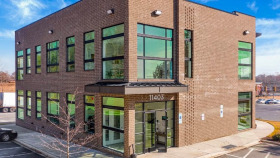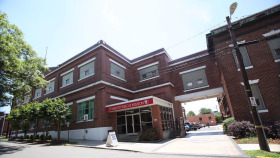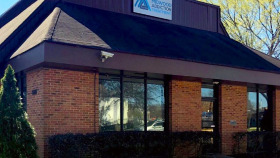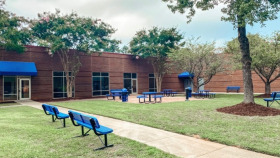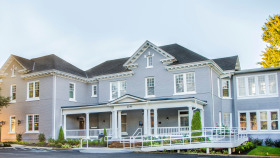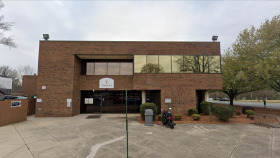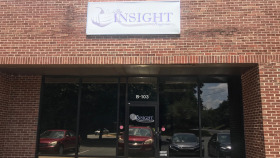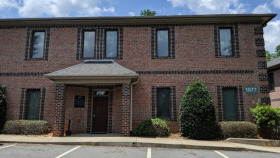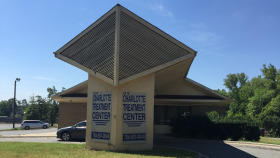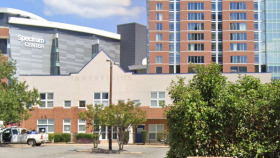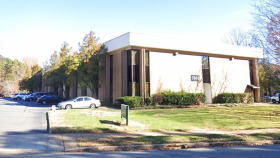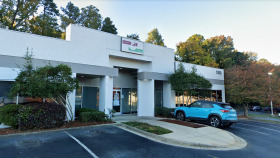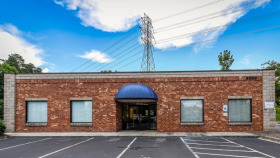Expert Insights
North Carolina Medicaid expansion looks like it will be passed into law soon, and many experts believe its passage is essential to overcoming the state’s opioid epidemic. But those same experts also agree that Medicaid expansion alone will not solve the problem. As I’ve said before, Southern states often have some of the highest rates of opioid abuse and addiction, while we have the lowest numbers of addiction treatment resources. North Carolina is no exception to that trend. Even in a metro area like Charlotte, licensed residential treatment centers, medical detox, and outpatient addiction services are few and far between. However, if NC lawmakers succeed in expanding health insurance for low-income residents, it could solve one problem while creating another: the state may very well find itself struggling to meet the demands of so many new Medicaid recipients in need of addiction treatment. Recognizing that addiction providers are already in short supply, North Carolina is taking another step that would accommodate Medicaid expansion by loosening the state’s “certificate of need” law that approves where hospitals, clinics, and health care facilities can be built. Lawmakers hope this will make it easier for addiction treatment providers to open throughout Charlotte and the state as a whole.
~ Nikki Seay
How Expensive is Drug Rehab in Charlotte?
 The cost of treatment in Charlotte varies depending on multiple factors. Take the following into account when putting together a budget:
The cost of treatment in Charlotte varies depending on multiple factors. Take the following into account when putting together a budget:
- Setting (inpatient vs. outpatient)
- Features and amenities (standard vs. luxury)
- Duration of program (30 days, 90 days, etc.)
- Health insurance coverage the individual has and/or the facility accepts
- Location (city, beachfront, rural, etc.)
You can generally expect inpatient drug rehab in Charlotte to be more expensive than outpatient programs since its programs provide room and board. Luxury facilities will also cost more than a standard inpatient program since they offer some of the best amenities.
Even if you lack insurance or the financial means to cover out-of-pocket costs, you still have options to access to quality care.
Free or Low-Cost Drug Rehabs in Charlotte
Charlotte has many low-cost and free options across the city and Mecklenburg County. These services are accessible to individuals who do not have health insurance coverage and/or have no income.
In order to qualify, you will be required to verify your North Carolina residency, your legal status in the United States, information about your addiction status, and proof of income and lack of insurance.
Does Insurance Cover Rehab Center Costs?
Yes, most insurance plans do cover rehabilitation for drug and alcohol addiction. The Affordable Care Act requires all insurance companies to provide coverage for mental health and substance use disorder treatments in the same way that physical health services are covered.7
The Mental Health Parity and Addiction Equity Act also mandates that mental health and addiction care coverage must be provided for anyone who needs these services.8 These laws ensure that your insurance provider must cover at least part of your program.
Private Insurance
Any health insurance coverage offered by a private company rather than the state or federal government is called private insurance. Insurance companies and brokers fall into this category. In North Carolina, private insurance providers include:9 Blue Cross Blue Shield of North Carolina, Aetna, Cigna Health, and United Health Care. If you have private insurance and seek addiction treatment for yourself or a loved one, at least some of the costs of inpatient and outpatient alcohol and drug rehab programs should be covered by your insurance plan. Exactly how much is covered depends on the specific plan you have.
Medicaid
Medicaid provides coverage for low-income families, anyone over 65 years old, under 19 years old, pregnant women, and parents. You can use it to cover substance abuse services, but you’ll want to find a rehab or detox center in Charlotte that accepts this form of payment.
Medicare
Medicare provides coverage to anyone over 65 years old and those with disabilities. If you have Medicare, you will pay a monthly premium based on your income. But remember that not all facilities accept Medicare as a method of payment.
Does Your Insurance Plan Cover Addiction Treatment?
Most health insurance plans cover addiction care. Call the number on the back of your insurance card to speak to a customer service representative of your provider and ask about your plan’s coverage details.
How Do You Pay for Addiction Treatment in Charlotte?
Sometimes low-income individuals cannot get into a free clinic because they are either unqualified (e.g., can’t prove state residency) or the waitlists are too long. If you’re facing a situation like this and don’t have insurance, there are ways to finance addiction programs in Charlotte. Because getting help is imperative for your health, you may want to consider other ways to make it more affordable for yourself or a loved one, such as:
- Finding and choosing a rehab center that offers sliding-scale fees
- Applying for scholarships offered by individual rehab centers
- Applying for government-offered funding through the Substance Abuse and Mental Health Services Administration (SAMHSA)
- Raising money through fundraising or a crowdfunding site
- Finding a facility that offers financing options or monthly payment plans
How Does Charlotte Compare in Alcohol and Drug Use?
The booming city of Charlotte is home to more than 915,000 residents.1 It’s the 15th largest city in the United States and ranked in the top 10 for livability, job availability, and urban forests. On average, about nine people died each day in North Carolina from drug overdoses in 2020, according to the state Department of Health and Human Services.2 There are more than 70 accredited alcohol and drug rehab centers in Charlotte and the surrounding area to combat this problem.
As with many other cities throughout the U.S., Charlotte is facing a public health crisis: many residents struggle with addiction to drugs and alcohol, known as substance use disorder.
North Carolina state alcohol and drug use statistics from 2019 include:3,4
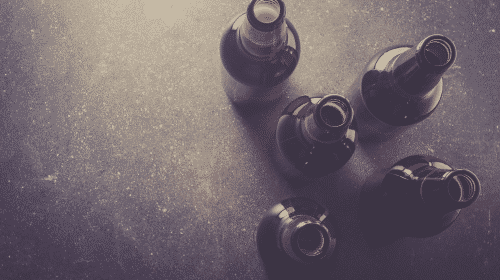
7% of residents ages 12 and older (405,000 people) were experiencing alcohol use disorder (AUD).

5% of residents ages 12 and older (562,000 people) were experiencing substance use disorder (SUD).

54,830 residents ages 12 and older enrolled in a substance use treatment program.
In the first three months of 2022 alone, 231 people visited the emergency room for opioid overdoses in the county.6 This shows the serious and growing problem of drug use, particularly opioids, in Charlotte and the surrounding area.
While statistics alone can’t tell the full story of the impact of a substance use disorder, many know first-hand how harmful drugs and alcohol can be to individuals, families, and their communities. Statistics do, however, tell us just how vital high-quality facilities are.
Alcohol and Drug Laws in Charlotte
In response to the growing number of people living with substance abuse disorder, North Carolina and the city of Charlotte have enacted various policies, laws, and social programs to help.
S.T.E.P. Program: Mecklenburg County’s Supervision, Treatment, Education, and Prevention (S.T.E.P.) program began in 1995. It aims to enhance and monitor the delivery of addiction services to certain individuals who have been charged with non-violent crimes. S.T.E.P. sends individuals to care, rather than jail, to break the cycle of addiction and reduce repeated law-breaking incidents. Participants are required to take part in drug screening or testing, court supervision, and drug and alcohol treatment.22
Good Samaritan Overdose Prevention Law: North Carolina’s Good Samaritan Law protects people who call 911 if another person is having an overdose. The law states that people cannot be tried in court for possessing small amounts of drugs or drug paraphernalia if they have called for help for a suspected overdose. They will also be protected if they are currently on probation. The goal of this law is to ensure people are not too afraid to call for help when someone has overdosed, potentially saving lives.23
Jessica Sosa Act: The Naloxone Access Law in North Carolina protects people who give naloxone to someone who is having an overdose. They are protected from a lawsuit for administering naloxone if they have given it for a suspected overdose.23
Employee Protections for Addiction Treatment: The Family Medical Leave Act (FMLA) offers protection against being fired for getting addiction help throughout the United States. You may take up to 12 weeks of unpaid work to attend to health concerns without fear of losing your employment. Rehab qualifies as a medical reason to seek this leave.24
Choosing the Right Level of Care
There are various types and settings of drug rehab centers in Charlotte. They each vary in structure and intensiveness. Here are the levels of care you can generally expect to find:
Medical Detox
If you are dependent on substances like alcohol or drugs like opioids, quitting can lead to uncomfortable—and sometimes dangerous—withdrawal symptoms. Medical detox can not only help manage your withdrawal symptoms, but it can also reduce the risk of relapsing.
Inpatient
Residential rehab is the most structured and intensive form. Here, you will find a peaceful and environment to jumpstart your recovery, away from everyday stressors. You will live at the treatment center during your stay and receive a variety of therapies and interventions.
Partial Hospitalization Programs (PHPs)
PHPs provide a high frequency of care—up to 30 hours per week—while still living at home.
Intensive Outpatient Programs (IOPs)
IOPs range from nine to 20 hours of therapy per week.
Standard Outpatient
The least intensive of these options, you live at home and commute to the center or a therapist’s office for a few hours each week.
Aftercare
After completing rehabilitation, you’ll want to continue building on the support you had in care by attending recovery meetings, going to therapy, or transitional housing.
What are Some Medications for Opioid and Alcohol Addiction
If seeking help for opioid or alcohol addiction, your medical team may decide that medication-assisted treatment is right for you. As part of MAT, your healthcare provider may prescribe certain FDA-approved medications to ease your withdrawal symptoms:16
Methadone is an opioid receptor agonist medication that reduces cravings without producing any pleasurable side effects.
Buprenorphine is a partial opioid agonist. It activates opiate receptors but doesn’t produce the euphoric high that users are seeking when they use it.
Suboxone (buprenorphine/naloxone) is a combination medication containing both an opioid agonist and an antagonist that helps relieve cravings and deter improper drug use. Injecting Suboxone will also cause a user to immediately go into withdrawal.
Naltrexone (Revia/Vivitrol) is an opioid antagonist that reduces the euphoria you feel from consuming alcohol or opiates.
Acamprosate is used to treat alcoholism by reducing cravings as well as withdrawal symptoms such as anxiety and sleep issues.
Disulfiram (Antabuse) is used for alcohol withdrawal. It reduces your desire to drink by causing uncomfortable symptoms when you consume alcohol.
If you have co-occurring mental health and substance abuse disorders, seek out a treatment center that can provide medication for mental health conditions, such as bipolar disorder or depression.
Finding Specialized Drug Rehabs in Charlotte
Addiction care varies, as everyone has different needs based on their substance use history, medical history, and life experiences. Many accredited alcohol and drug rehab centers in Charlotte provide specialized care.
Veteran
Veteran programs are specifically tailored for retired military personnel. These Charlotte detox centers and rehabs provide specific therapies to veterans with SUD. There are many reasons that veterans may turn to substances to cope with past experiences, and these are designed to address just that.
LGBTQ+
Some rehab centers have programs that specialize in treating members of the LGBTQ+ community. These facilities are sensitive to the unique experiences and challenges of this community, including family rejection, discrimination, internalized homophobia, and transphobia.
Men-Only
Men-only programs are exclusively for men in recovery from drug and alcohol addiction. Men are often brought up to be emotionally stoic, strong, and independent and may worry they will be perceived as “weak” for seeking help.
Women-Only
Women-only programs specialize in providing a space for women to process their experiences and recover from addiction in a safe, supportive environment. Women who have had previous traumatic experiences with men may find these particularly helpful in their recovery.
Teen
Teen/youth programs offer specialized care for teenagers and adolescents with substance use disorders. These are designed to address the specific challenges and struggles that youth experience.
Should You Travel for Drug and Alcohol Rehab in Charlotte?
 If you don’t live in Charlotte but want to attend a facility in the area, there are many benefits to traveling:
If you don’t live in Charlotte but want to attend a facility in the area, there are many benefits to traveling:
- There is a specialized program that suits your needs
- You prefer the warm climate
- You need a change of scenery
- You used to live in Charlotte and want to return to the area
- You have family or friends in the area who can provide support
- Your insurance covers addiction treatment in Charlotte
- You need a fresh start and plan to live in Charlotte after completing rehab
Resources
- World Population Review. (2022). Charlotte, NC population 2022.
- NCDHHS. (2022, March 21). North Carolina Reports 40% Increase in Overdose Deaths in 2020 Compared to 2019
- Substance Abuse and Mental Health Services Administration. (2019). Behavioral Health Barometer North Carolina, Volume 6.
- Substance Abuse and Mental Health Services Administration. (2019). 2019 TEDS report.
- North Carolina Department of Health & Human Services. (2022). Opioid and substance use action plan data dashboard.
- North Carolina Injury & Violence Prevention Branch. (April 2022). Mecklenburg County.
- Healthcare.gov. Mental Health and Substance Abuse Coverage.
- National Alliance on Mental Illness. Mental health parity.
- National Committee for Quality Assurance. (2022). NCQA health insurance plan ratings North Carolina.
- Center for Medicaid and CHIP Services. (December 2020). Mandatory Medicaid state plan coverage of medication-assisted treatment.
- Medicare.gov. (n.d.). Mental health & substance use disorder services.
- National Institute on Drug Abuse. (January 2014). Treatment settings.
- National Library of Medicine. (April 2022). Opiate and opioid withdrawal.
- National Library of Medicine. (April 2022). Alcohol withdrawal.
- Winslow, B.T. and Hebert, M. (2016). Medications for alcohol use disorder. American Family Physician, 93(6), 457-465.
- FindTreatment.gov. (2019). Medications used in treatment.
- (2015). Detoxification and Substance Abuse Treatment.
- Charlotte Regional Visitors Authority. (2022). Lower south end.
- Charlotte Regional Visitors Authority. (2022). Midtown.
- Charlotte Regional Visitors Authority. (2022). Noda.
- Charlotte Regional Visitors Authority. (2022). South end.
- Mecklenburg County Government. (2022). T.E.P. program.
- NC Harm Reduction Coalition. (n.d.). 911 Good Samaritan and Naloxone Law
- U.S. Department of Labor. (n.d.). Family and medical leave act advisor.


